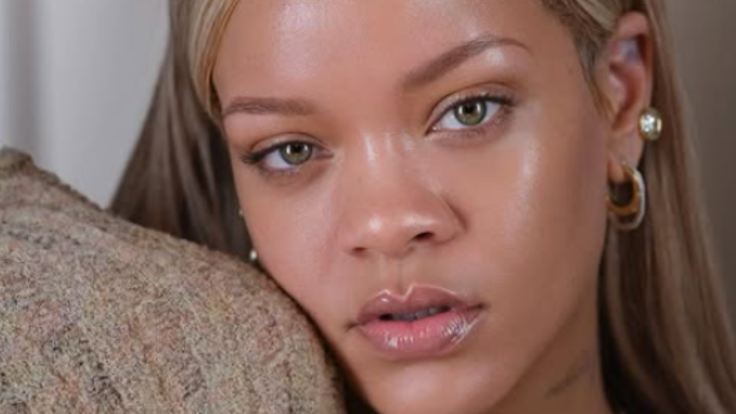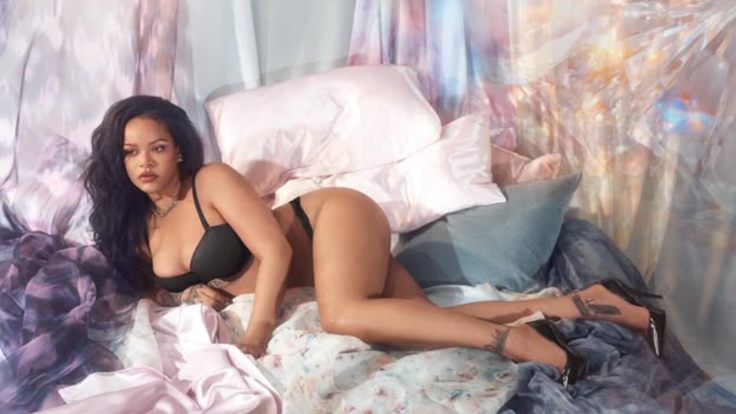Rihanna's Billionaire Empire 'Crumbles' as Fenty Beauty Struggles — Singer Faces Stunning £60M Loss
Rihanna now faces unwelcome headlines about the commercial limits of translating celebrity into luxury fashion

Rihanna's beauty-and-fashion empire is facing a sharp reckoning after UK filings revealed a multi-million-pound hit to her luxury ventures.
Newly filed accounts for Denim UK Holdings, the British vehicle linked to Rihanna's Fenty fashion partnership with LVMH, show investments that disappeared from the balance sheet and a dramatic swing in reserves, signalling an effective loss in the region of £27 million ($36 million).
The same week, Reuters reported that LVMH is exploring the sale of its 50 percent stake in Fenty Beauty, underscoring a period of portfolio reappraisal across the Fenty universe.
Rihanna, who built a global brand on the back of Fenty Beauty's inclusivity message, now faces unwelcome headlines about the commercial limits of translating celebrity into luxury fashion. Her cosmetics operation remains sizeable, with reports claiming Fenty Beauty generated roughly £340 million ($450 million) of net sales in 2024, but the broader Fenty ecosystem appears to be at a crossroads.
Filings Show a Heavy Hit to the Fashion Arm
The accounts lodged at Companies House for Denim UK Holdings provide the clearest and most direct confirmation of financial pain. The balance sheet for the year ended 31 December 2024 shows investments of £26,842,259 ($35 million) in 2023 disappearing to nil in 2024, while profit and loss reserves swung to a negative £25,406,189 ($33 million).
Taken together, that movement implies an effective reduction in shareholder value of roughly £26–27 million ($36 million), the figure widely reported in the trade press.

Those numbers reflect the legacy of the Fenty fashion venture launched with LVMH in 2019, which was quietly discontinued in 2021 after struggling to find commercial traction in the ultra-luxury sector. The collapse left a clear accounting trail: high initial capitalisation followed by impairments and write-downs as the venture closed. The company's filing notes that the directors authorised the financial statements on 26 September 2025.
For a public figure whose business narrative has become entwined with the Fenty brands, the figures are stark. They do not, however, erase the success of other arms of the business: Fenty Beauty's scale and the continuing growth of Savage X Fenty in lingerie and e-commerce mean the overall commercial picture is more nuanced.
LVMH's Move Signals Strategic Uncertainty
In a separate development that accentuates that nuance, Reuters reported on 21 October 2025 that LVMH has engaged Evercore to explore a possible sale of its 50 per cent stake in Fenty Beauty. Sources told Reuters the brand could be valued between £750 million - £1.5 billion ($1 billion - $2 billion), a sign that, despite setbacks in fashion, the beauty business retains significant market value.
For LVMH, which traditionally nurtures its maisons over long cycles, the possible divestment would mark an unusual shift. The conglomerate's own results commentary for 2025 underlines a cautious landscape for luxury goods; strategic pruning of non-core assets is therefore plausible if a partner's priorities change.
Industry analysts say such moves are pragmatic rather than punitive: buying or selling stakes in high-growth beauty labels has become a routine way for conglomerates to rebalance exposure to faster-moving consumer categories. In market terms, Fenty Beauty's reported 2024 net sales of about $450 million make it an attractive, liquid asset should LVMH seek to monetise part of the business.
From 'Makeup for All' to Strategic Pressure
Rihanna's public persona, the barrier-breaking founder who launched foundations for a more inclusive cosmetics palette, is not easily reconciled with the ledger entries of a failed fashion play.
On Fenty's own pages, the mission is explicit: the brand was created 'so that women everywhere would be included', a deliberately human and social aim rather than a narrow luxury pitch. Those founding statements help explain the enormous brand goodwill that still surrounds Fenty.
But goodwill does not always convert into profits in every sub-sector. For Rihanna, motherhood and music commitments sit alongside the operational demands of running multiple commercially distinct businesses, from makeup to lingerie to high fashion.
The filings merely quantify a particular loss; they do not fully capture the reputational capital or long-term brand equity still at play.
Rihanna's empire has taken a hit on paper, but the brand's reach and resonance mean the worst-case forecasts remain far from inevitable.
© Copyright IBTimes 2025. All rights reserved.





















